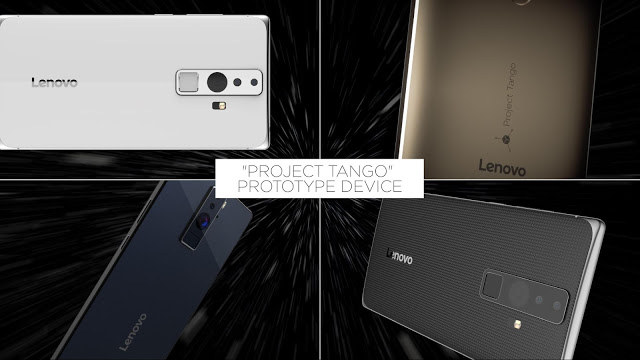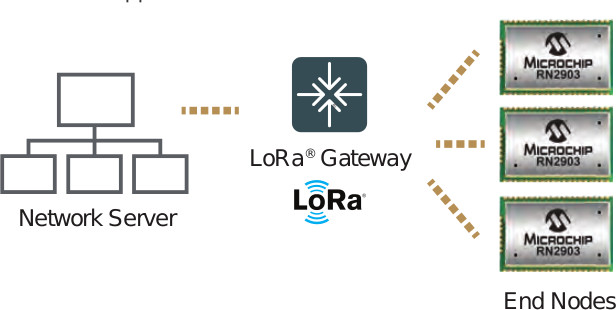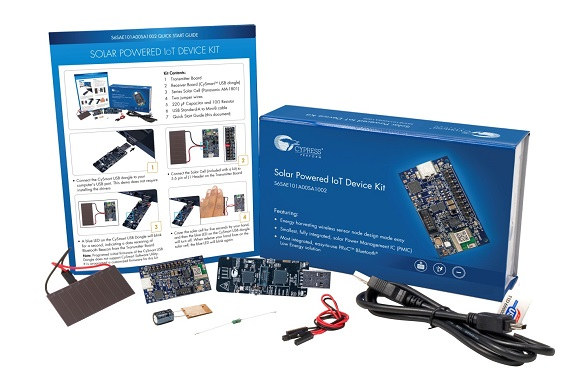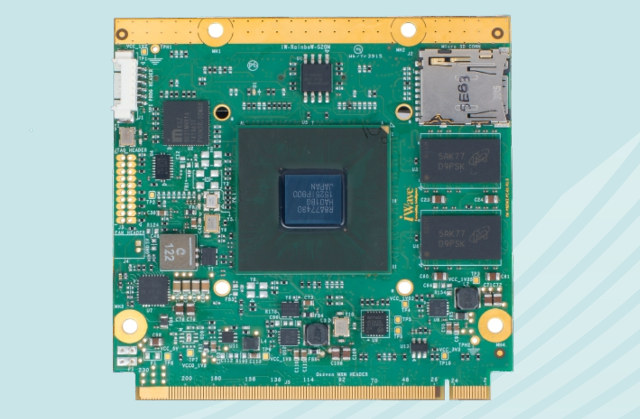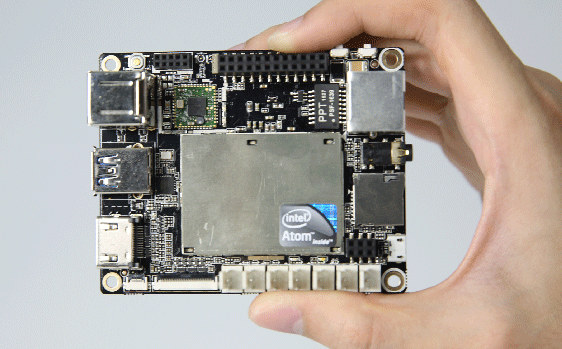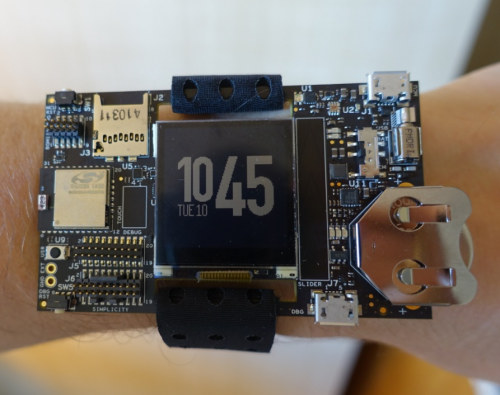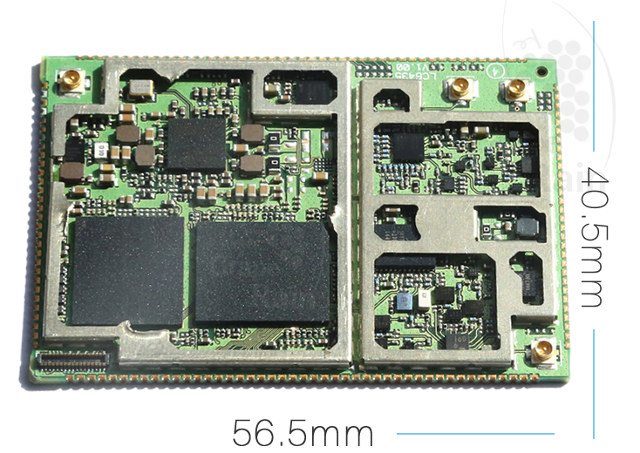Project Tango is a project launched in 2014 by Google ATAP that aims at creating 3D map of your environment using 3D motion tracking with depth sensing for tracking your movements in 3D, precise and quick measurements, augmented reality and more. The first Project Tango development kit was a tablet based on Nvidia TegraK1, but Google recently announced that Lenovo planned to launch the first consumer smartphone with the technology. Beside the announcement that there are going to make a phone, the company did not provide many other details so far, but it should feature a screen smaller than 6.5″ and cost less than $500. The main reason Google posted about this before CES 2016 was probably to reach out to developers who can submit the app idea to be features on the first Tango phone by February 16, 2015 with the following materials: Project schedule including milestones for development […]
Microchip Introduces $11 RN2483 & RN2903 LoRa Modules and $70 LoRa Evaluation Kits for IoT & M2M Applications
LoRa is one of those long range low power WAN standards used for the machine to machine (M2M) and Internet of things (IoT) applications. I already featured a Semtech Lora module here with a line-of-sight range of up to 20 to 30km, and the company has just partnered with STMicro to deploy LoRa solutions, but today, I’m going to have a look at Microchip Lora modules and development kits that I discovered in the company’s Micro Solutions Nov/Dec 2015 publication. The company has launched two modules for the European and North American markets with respectively RN2483 LoRa 433/868 MHz R&TTE Directive Assessed Radio Modem and RN2903 915 MHz North American modem. Apart from the different frequencies, both modules have similar features: On-board LoRaWAN Class A protocol stack Tx/Rx Power RN2483 – 40 mA (14dBm, 868MHz) Tx, and 14.2 mA Rx @ 3.6V RN2903 – 124 mA Tx max, and 13.5 mA […]
Cypress Unveils a $49 Solar Powered IoT Development Kit with Bluetooth LE Connectivity
Cypress Semiconductors has recently launched a Solar powered IoT device kit, with the easy-to-remember codename S6SAE101A00SA1002, featuring the company’s CYBLE-022001-00 Bluetooth Smart module, and S6AE101A energy harvesting power management IC (PMIC) on the main board, as well as all accessories such as a small solar panel, a BLE-USB bridge, and all necessary components and cables. Target applications include battery-less wireless sensor node (WSN), IoT device that monitors various sensors, BLE Beacon, wearable device, building energy management system (BEMS), Home EMS, Factory EMSystem, wireless lighting control,wireless HVAC sensor and security system. The main features of the Energy harvesting motherboard include: Cypress CYBLE-022001-00 Bluetooth Smart module with ARM Cortex-M0 @ 48MHz, 128 KB flash, 16KB SRAM Cypress S6AE101A energy harvesting PMIC Sensor – Temperature & humidity sensor USB – 1x USB port for programming and debugging Debugging – SWD (serial Wire Debug) connector, JTAG header for USB-BLE Expansion – Sensor expansion connector […]
iWave Systems iW-RainboW-G20M-Q7 SoM Features Renesas RZ/G1M Cortex A15 SoC
iWave Systems has unveiled a new Qseven 2.0 compliant system-on-module part of their RainboW family with iW-RainboW-G20M-Q7 module powered by Renesas RZ/G1M dual core ARM Cortex A15 SoC, and targeting industrial and automotive applications with over 10 years of support. iW-RainboW-G20M-Q7 module specifications: SoC – Renesas RZ/G1M dual core ARM Cortex A15 @ 1.5GHz with PowerVR SGX544MP2 GPU @ 520MHz System Memory – 1GB DDR3(expandable) Storage – 4GB eMMC Flash (expandable) + 2MB SPI NOR Flash for boot code, and optional Micro SD Slot Connectivity – 1x Gigabit Ethernet PHY USB – 2 Port USB HUB I/Os via 230-pin Qseven edge connector: Storage – 1x SATA , 1x SDHC USB – 1x USB3.0 host, 2x USB 2.0 hosts, or 1x USB 2.0 device Display – 1x LVDS Connectivity – 1x Gigabit Ethernet Audio – 1x I2S Audio 2x PWM, 2x I2C, SPI, CAN, UART, GPIOs 1x PCIe (multiplexed with SATA) JTAG or […]
LattePanda is a $79 Arduino Compatible Intel Atom x5 Board Running Windows 10 (Crowdfunding)
I feel like I’m living in another world after writing a title combining Arduino, Intel and Windows 10, but that’s exactly what LattePanda is promising with a development board featuring both an Intel Atom x5-Z8300 processor and an Atmel AVR MCU, and Windows 10 as the operating system. LattePanda board specifications: SoC – Intel Atom x5-Z8300 “Cherry Trail” quad core processor @ 1.44 GHz (Burst frequency: 1.84 GHz) with Intel Gen8 HD graphics @ 500 MHz System Memory – 2 to 4 GB DDR3L Storage – 32 or 64 GB eMMC, micro SD slot MCU – Atmel Atmega32u4 micro-controller Video Output / Display – HDMI, and MIPID DSI connector Audio I/O – HDMI, 3.5mm audio port Connectivity – Ethernet, WiFi and Bluetooth 4.0 USB – 1x USB 3.0 port, 2x USB 2.0 host ports, 1x micro USB port for power Serial – 1x from Intel SoC, 1x from Atmel MCU […]
Thunderboard Wear is a $75 Smartwatch Development Board by Silicon Labs
A few days ago I watched an ARMDevices.net’s video about an ARM’s smartwatch reference design running mbed OS 3.0, powered by a Silicon Labs EFM32 Giant Gecko Cortex M3 MCU, and promising up to 2 months battery life on a 160 mAh battery. While I could not find the full details about the reference design, I noticed Silicon Labs also launched a development board called Thunderboard Wear, based on the same platform, just quite bigger, and still wearable… (Sort of) Thunderboard Wear specifications: MCU – Silicon Labs EFM32GG995F1024 ARM Cortex-M3 MCU up to 48 MHz with 128 kB RAM,1 MB Flash External Memory – 256 kB external SRAM External Storage – micro SD card slot Display – 128×128 pixel Memory LCD from Sharp Connectivity – Bluetooth 4.1 smart module (Silicon Labs BGM111), upgradeable to Bluetooth 4.2 Sensors Ambient Light Sensing (ALS) and Proximity/Gesture via Silicon Labs Si1141. Optical hear-rate monitoring […]
Mediatek LinkIt Smart 7688 and Smart 7688 DUO Boards Run OpenWRT for IoT Applications
MediaTek LinkIt is a collection of development platforms designed for the prototyping of wearables and Internet of Things (IoT) devices, and last year they started with LinkIt ONE board based on Mediatek MT2501 “Aster” micro-controller and featuring WiFi, Bluetooth, GPSD and GSM/GPRS connectivity. Mediatek Labs has now launched two new LinkIt board, namely LinkIt Smart 7688 and LinkIt Smart 7688 DUO, both powered by Mediatek MT7688 MIPS processor and running OpenWRT, with the latter also adding an Atmel ATmega32U4 for Arduino compatibility. LinkIt Smart 7688 Board LinkIt Smart 7688 is then the simpler of the two with the following specifications: Processor – Mediatek MT7688AN MIPS24KEc processor @ 580 MHz with WiFi System Memory – 128MB DDR2 RAM. Storage – 32MB flash + micro SD slot Connectivity – 1T1R Wi-Fi 802.11 b/g/n with chip antenna and I-PEX conector USB – 1x micro USB host port, 1x micro USB port for power […]
Graperain Introduces G8916 Qualcomm Snapdragon 410 SoM and LTE Mobile Development Board
Qualcomm applications processors used to be found mostly in consumer devices like smartphones and tablets, but recently the company has expended their use to the embedded space, and for example, we’ve seen Snapdragon 410 64-bit ARM processor used in DragonBoard 410c board, Intrinsyc Open-Q 410 SoM, Inforce 6309 SBC, and today I’m going to have a look at Graperain G8916 system-on-module that’s also integrated into a 4G/LTE mobile development platform. G6916 CPU module specifications: SoC – Qualcomm Snapdragon 410 (MSM8916) quad core Cortex A53 processor @up to 1.4GHz with Adreno 306 GPU System Memory – 1GB DDR3 (2GB optional) Storage – 8GB eMMC 4.5 flash (16 and 32GB optional) + micro SD support up to 128GB via I/Os Connectivity – 802.11 b/g/n WiFi, Bluetooth 4.0 LE, FM, NFC/RFID, GPS/GLONASS with 4x on-module antenna connectors. Cellular Connectivity TD-LTE – B38/B39/B40/B41; FDD-LTE – B1/B2/B5/B/B26 TD-SCDMA -B34/B39 GSM – 850/900/1800/1900 CDMA – 1x/EVDO […]


